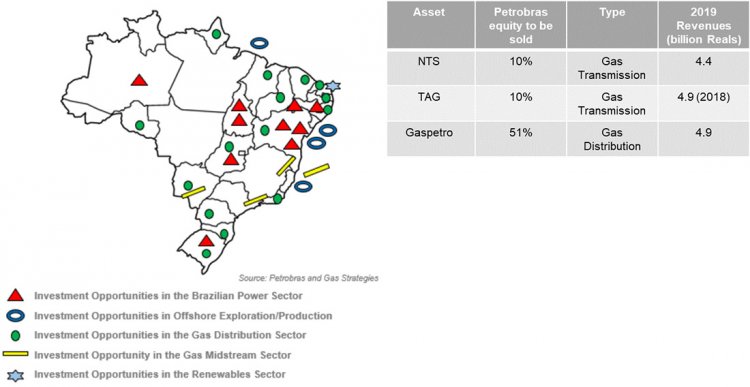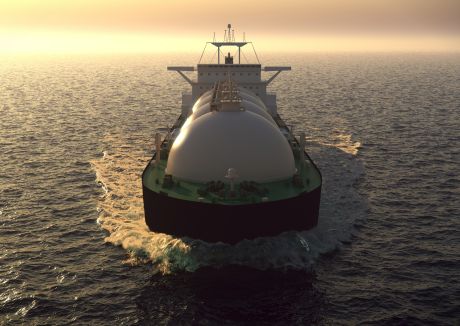A different kind of Winter Sale
The stage seems set this month for the launch of what is expected to become a flurry of sales processes for assets owned by Petrobras. Following a quiet couple of months within the COVID-19 constrained oil and gas infrastructure transaction market, the eyes of investors, bankers, lawyers and other advisors are turning to Brazil.
This privatisation drive was originally planned to commence in 2019, following the ratification of the Novo Mercado de Gas (New Gas Market) liberalisation programme which had its roots in the “Lavo Jato” corruption scandal that rocked the country in 2016, and in which Petrobras was heavily implicated. The government’s need to focus on the coronavirus outbreak has led to delay in execution of the sales and it now seems like the starting gun will sound in late June.
The liberalisation programme has the objective of limiting the role of Petrobras to create a more competitive gas market with lower prices for consumers – Brazil has some of the highest gas prices for industrial customers globally.
A core part of this liberalisation is the divestment by Petrobras of equity stakes in large-scale infrastructure across the oil and gas chain, as well as in renewables. Petrobras has already published a number of deal teasers that include large transmission, distribution and power assets. First to launch will be divestments of remaining ownership stakes in three major gas assets: Nova Transportadora do Sudeste (NTS) and Transportadora Associada de Gás S.A. (TAG) - both gas transmission pipelines - and GASPETRO a holding company owning stakes in multiple gas distribution companies around the country. In a growing gas market like Brazil, these assets are expected to be highly sought-after by investors.
Figure 1 - Expected Petrobras Gas Asset Sales in 2020
 Source: Petrobras, Gas Strategies
Source: Petrobras, Gas Strategies
What to know before you go
For investors interested in making the journey to Brazil (even if virtually) there are a few things to watch for:
- The power sector is evolving rapidly, with renewables and gas (including off grid LNG to power schemes) vying to capture market growth
- Gas supply is in flux, with indigenous production growing and imports from Bolivia and LNG competing for market share
- A market liberalisation process and new regulatory framework are being developed, creating new opportunities but also risks for some legacy businesses
1. The Power sector: Will gas-fired power stations connected to gas transmission continue to see demand?
According to the National Energy Plan 2019, Electricity demand in Brazil is expected to expand rapidly, requiring a growth in generation capacity of some 50% between 2019 and2029. With this level of growth gas fired capacity will need to triple, even with the strong projected growth in renewables – a strong positive when compared to European markets. While this will be beneficial overall for the sector, an area to dig into is the impact of new gas fired capacity being increasingly developed as integrated LNG-to-power projects, where the gas does not enter the main system, reducing flows that can attract a tariff. While overall electricity demand supports CCGT construction, strong renewable expansion could push gas into a balancing role longer-term and reduce both gas demand and the requirement to book long-term capacity on pipelines.
2. Gas supply: How will changing supply sources affect the gas market?
Brazil is growing into its role as a major oil producer, with which domestic gas output goes hand in hand. In the long-term, this could see a re-shaping of the supply mix. Adding to that complexity of future gas supply mix is the matter of the role that LNG imports will play in Brazil long-term . Historically used to balance swings in hydropower, LNG is currently being touted as a keystone of the supply mix with multiple import projects proposed. However, impressive growth in domestic gas production offshore could change this picture. Output has grown by 50% since 2013, in step with impressive rises in oil production from the famous offshore pre-salt developments.
Historically, gas delivered onshore has been constrained by the lack of sufficient offshore pipeline capacity. This is beginning to change with a new pipeline due to come on stream in 2021 that will increase capacity by 40% to 1.5 Bcf/d with further expansions planned to follow. The future of Bolivian imports is clearer now, with the contract renewed (albeit at a lower volume) in 2020. A possible wild card is future imports by pipeline from Argentina as it increases its gas output from the prolific Vaca Muerta shale basin.
3. Market Liberalisation: What is the timeline for Brazilian regulatory changes and what will change?
The Brazilian government and regulatory authorities have committed to reforming the regulatory framework for gas transmission over the next three years. This New Gas Market Programme aims to allow access to gas infrastructure to third parties, including upstream producers, to transport and market gas directly to consumers. The asset sales will be taking place while the regulatory environment is still ‘wet cement’ – so an understanding of the current plans, both what is published and what is being discussed, combined with lessons learned from other jurisdictions will be essential tools in evaluating different asset opportunities.
Tariff structures are also changing, moving from negotiated rates to a tariff set by the regulator. With methodologies for setting the RAB, rates of return and the translation of allowed revenues into entry-exit tariff structures all currently in development, there is plenty of uncertainty to be addressed.
Before committing to spending time at the Winter Sales in Brazil, investors will need to get comfortable with the shift from a world of long-term contracted negotiated agreements to a more standard regulated model – the kind that will be familiar to owners of regulated assets in Europe but without knowing precisely what the final model will look like.
Infrastructure investment - part of a growing optimism
The Brazilian economy has endured a bruising time of late, with coronavirus based concerns causing investors to dump emerging market assets and the Real seeing steep falls. There was some good news in a recent government bond offering, where there was strong demand from investors, indicating optimism in the longer-term. For infrastructure investors, Brazil offers a powerful long-term story of energy demand growth and opportunities arising from the continued opening up of previously monopolised energy industries.
For examples of our work click the links below:
Acting as the commercial eyes and ears of an investor in a complex Brazilian LNG-to-power project
Prompting financial investors to reassess their valuation of a potential Mexican pipeline deal
***
If you would like more information about how Gas Strategies can help your business with Consulting services across the value chain or provide industry insight with regular news, features and analysis through Information Services or help with people development through Training Services, please contact us directly.








